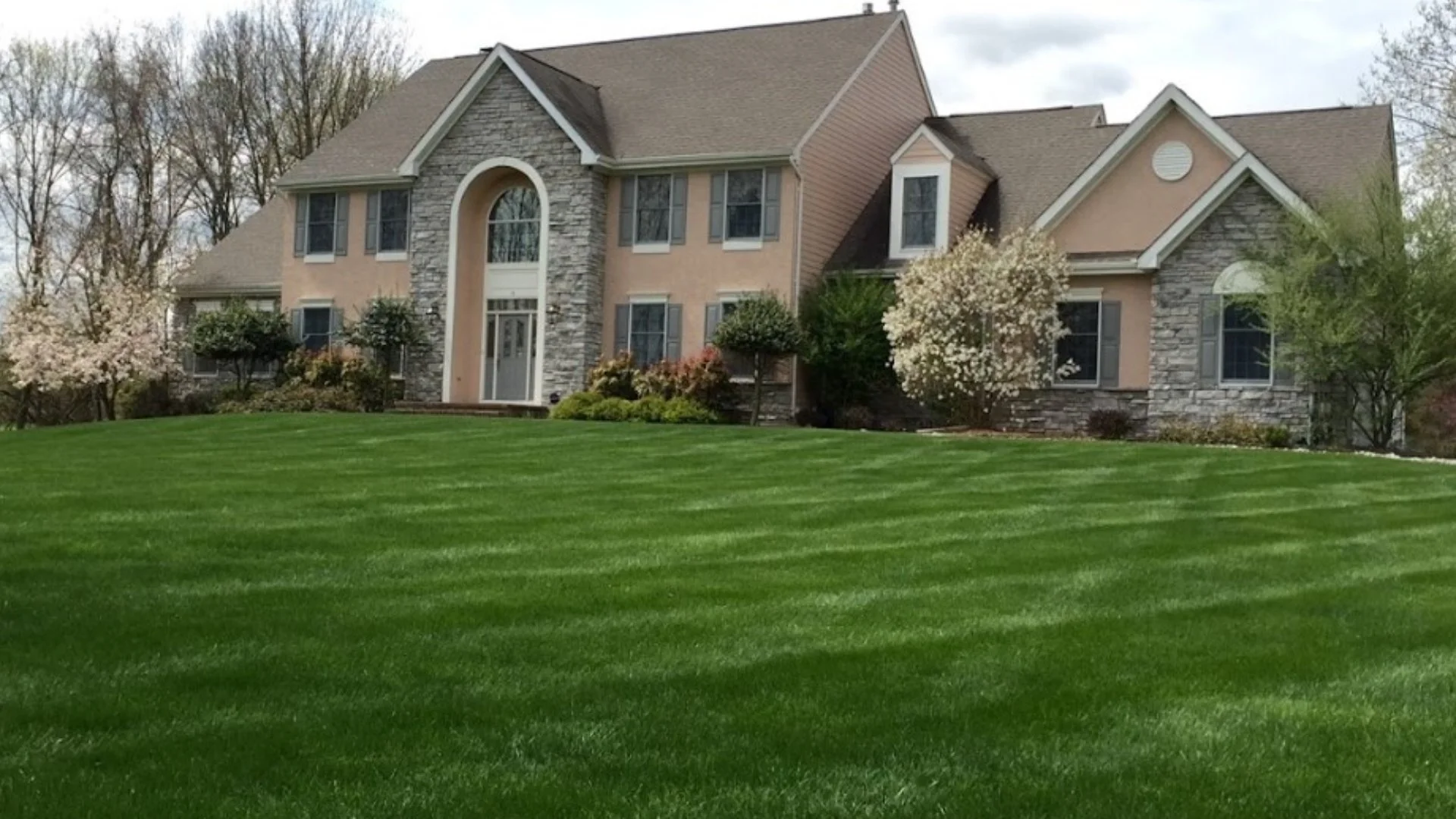Professional Lawn Care in Bloomfield, New Jersey
Lawn care in Bloomfield, New Jersey, needs a tailored approach due to its distinctive climate—warm summers and cold, snowy winters, with temperatures fluctuating between 23°F and 86°F. To keep lawns looking their best in these conditions, homeowners should follow a strategic lawn care regimen.
Bloomfield’s Climate and Its Impact on Lawn Care
With its four distinct seasons, Bloomfield’s lawn care varies throughout the year. In the humid summers, lawns need regular watering and mowing to handle the heat and growth. In winter, it’s all about protecting your grass from cold and frost, which means less mowing and applying the right fertilizers to fortify the roots.
Optimal Grass Types for Bloomfield
In this region, cool-season grasses like bent grass, Kentucky bluegrass, and perennial ryegrass perform best. They grow actively in spring and fall, so expect to mow and fertilize more frequently during these cooler months.
Detailed Lawn Care Advice for Bloomfield Residents
Regular Maintenance: This involves mowing every two weeks in peak growth seasons, consistent weeding, and clearing debris. Also, undertake thorough yard cleanups in spring and fall.
Soil Testing: Check your soil’s pH and nutrient levels twice a year. Customize your lawn treatment based on these results for healthier grass.
Watering Schedule: Aim for 1-1.5 inches of water per week, preferably in the early morning. Using drip irrigation or soaker hoses can enhance water efficiency.
Fertilization: Use slow-release fertilizers rich in nitrogen in early spring and late fall. During growth periods, apply a balanced fertilizer every 4-6 weeks.
Aeration: Aerate your lawn in spring and fall to reduce soil compaction and promote root growth.
Recycling Grass Clippings: Leave clippings on the lawn after mowing to naturally fertilize the soil.
Weed Control: Apply pre-emergent herbicides in spring and post-emergent ones as necessary during the growing season for weed management.
Thatch Management: Annually remove excess thatch to ensure proper soil aeration and water penetration.
Pest and Disease Management: Regularly inspect for and address any signs of pests or disease to keep your lawn healthy.
Organic Options: Consider using organic products for fertilization and pest control to maintain a healthy lawn ecosystem.
Pruning: Prune trees and shrubs in late winter or early spring for optimal growth and shape.
Over-Seeding: Over-seed in early fall to repair any summer damage and improve lawn density.
Edging: Maintain clean lawn edges by edging monthly, which also helps prevent grass from encroaching on other areas.
Choosing Plants: Opt for native plants and shrubs that thrive in local conditions for easier upkeep and better growth.
Equipment Upkeep: Keep your lawn care tools in top condition with regular maintenance, including sharpening blades and cleaning filters.



